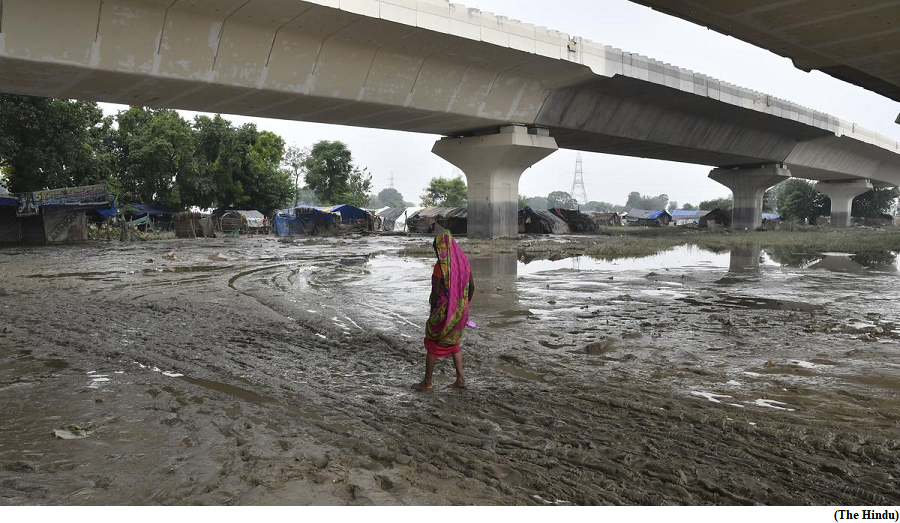Climate events and an umbrella for urban health (GS Paper 3, Environment)

Context:
- While every section of the population is affected in different ways as a result of extreme climate events, there is no doubt that households in urban areas, particularly in less developed parts of a city such as slums and urban settlement colonies, are likely to be the most vulnerable groups.
- A large majority of people in these slums and resettlement colonies live in poverty, working in the informal sector of the urban economy with no social security benefits.
Extreme events & their impact:
- Beginning with the cyclonic storm Biparjoy that formed over the Arabian Sea in June and which made landfall in western India, to the floods in the north-eastern State of Assam, and the recent episodes of heavy rain and devastation in parts of north India, the subject has been a matter of concern especially for policymakers.
- Common water and vector-borne diseases such as typhoid, cholera, dysentery, leptospirosis, malaria, and dengue are likely to impact people in rain-affected areas. Conditions in these areas are most likely to be conducive for the spread of water and vector-borne diseases.
Vulnerability in urban areas:
- While households in general with poor socio-economic indicators are more vulnerable to malaria, it is urban households, when compared to their rural counterparts that are significantly at a much greater odds of suffering from malaria. It is well known that dengue too affects the urban population more.
- The households from climatically high and moderately high vulnerable States are at greater odds of suffering from malaria.
- Controlling the spread of these diseases requires a systematic and coordinated effort not only within but also between two or more States.
- One reason is because of the movement of people between States. Therefore, coordinating mitigation and adaptation efforts can be a challenge.
Resilient health system:
- Given increasing exposure to unpredictable and extreme climatic events, there is need to rebuild the urban primary health-care system and ensure its resilience. Such a system should focus on the vulnerable urban population, especially those living in urban slums and peri-urban areas.
- A resilient health system is one which can respond to emergency situations, prepare well in advance against impending crises and adapt to changing public health needs.
- A crucial prerequisite for this is greater public investment with an immediate focus on urban areas that are more vulnerable to climatic shocks.
Role of urban local bodies:
- Even though the National Urban Health Mission has made modest beginnings in improving primary-care systems in urban areas, the limited and varied ability of urban local bodies in generating revenues constrains progress.
- A large part of preventive and public health functions are the responsibilities of local bodies.
- There is need for a special fund from statutory institutions such as the Finance Commission that is targeted towards building a resilient system for vulnerable urban areas. Such attention needs to go beyond cities, to towns.
The COVID-19 experience:
- The experience during the COVID-19 pandemic has shown that public health emergencies need greater coordination and cooperation across various actors in terms of knowledge and data sharing, preventive and curative functions, treatment practices and, above all, the regulation of rates and standards.
- The realm of surveillance and information systems such as the Integrated Disease Surveillance Programme needs to be universalised, made comprehensive and strengthened.
Way Forward:
- With the complex nature of the health and the climate crisis, the current system of vertical disease control programmes needs to give way to a comprehensive health system approach in the management of public health programmes.
- An immediate step in working towards this could be the integration of front line workers across various disease management programmes to create a cadre of multi-purpose, front line public health cadres in urban areas, who would be accountable to communities as well as to the health system.
- Such integration will also help address one of the key challenges in the sphere of public health in the country, a shortage of an adequately trained workforce in health and allied areas.
- Such systems must integrate in their planning and management the idea that climate change-led events are only going to be more frequent and intense. The world needs to be better prepared.


